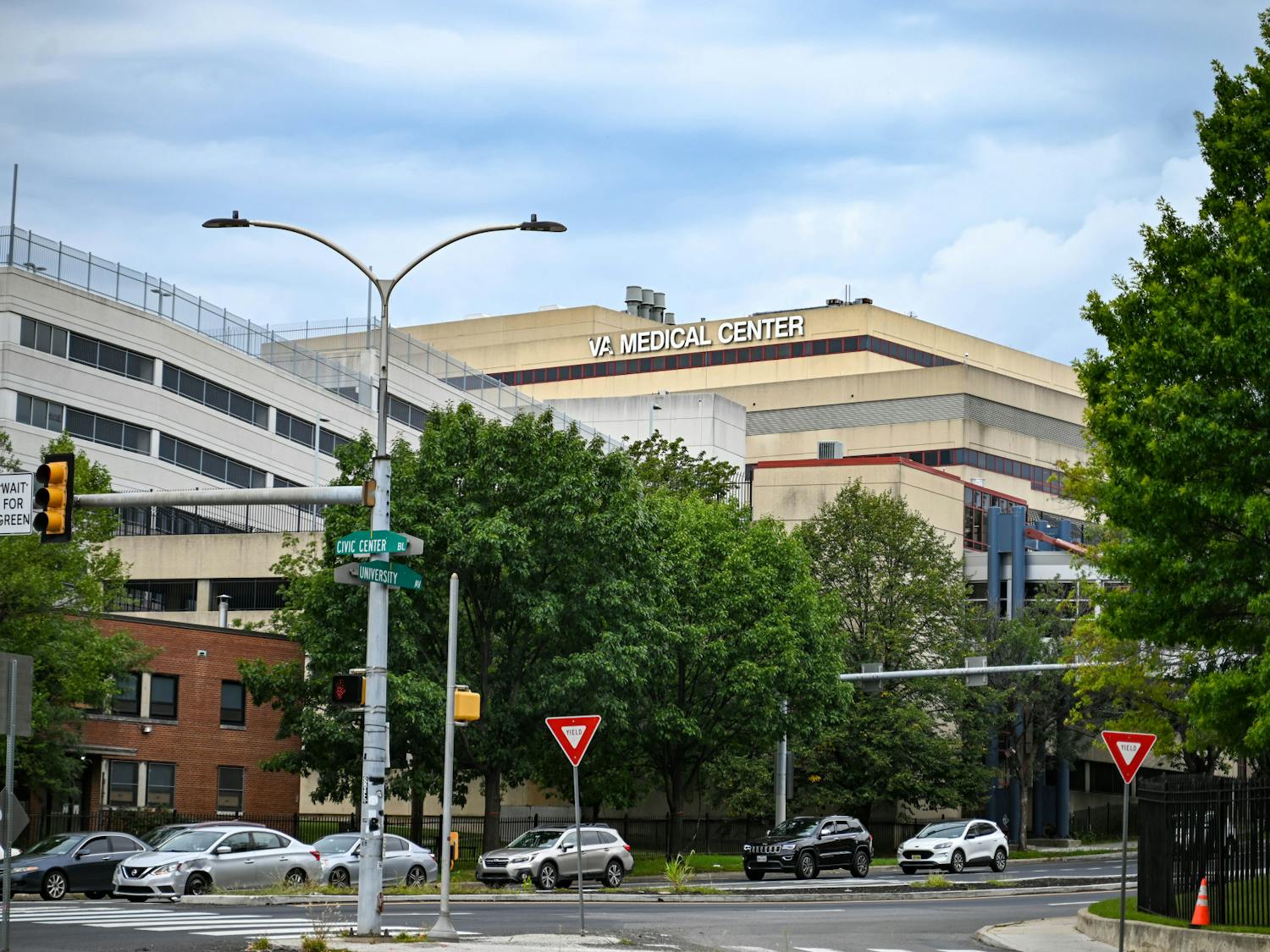Penn’s Division of Public Safety plans to more strictly enforce safety regulations prohibiting the usage of personal mobility items such as electric scooters on campus walkways.
Vice President of Public Safety Kathleen Shields Anderson clarified in a meeting with The Daily Pennsylvanian that no new policy is being created. Instead, DPS will double down to implement the original policy from 2014 — which bans the use of these items on campus walkways from 8:30 a.m. to 5:30 p.m. on Mondays through Fridays.
Mobility devices such as electric scooters have become the transport method of choice for many students traversing campus. Student-athletes are some of the most frequent users of scooters, who find them helpful when completing long-distance commutes to Franklin Field. Without appropriate regulation, however, other students have found that these devices — which can reach speeds of 20 miles an hour — can make heavily trafficked routes like Locust Walk more dangerous.
Since 2014, the University’s bike policy has stated that cyclists must dismount and walk their vehicles on campus walkways at the specified times, although students previously reported that these guidelines were unclear and hardly ever enforced. Under Pennsylvania state law, bikes and scooters are considered vehicles and must solely be ridden on designated bike lanes and obey basic traffic laws.
The department plans to take an “educational approach” in enforcement, which will feature campaigns making students riding mobility devices aware of how to safely share the road with pedestrians.
According to Penn’s Undergraduate Assembly meeting minutes, the Penn Bike Committee –consisting of both undergraduate and graduate students and staff from DPS – Penn Business Services, and Penn Facilities met with DPS prior to Sept. 21 to discuss the status of bikes, scooters and other alternative transportation methods on campus.
UA student representative and Wharton junior Xavier Shankle, who holds a seat on the committee, told the DP that DPS wanted feedback from the committee on their existing policy given the recent increase in electric scooter usage. Although the committee aims to promote cycling as an effective and sustainable mode of transit throughout campus, the committee generally agreed with the DPS policy, citing pedestrian safety and rider hazards as primary reasons for doing so.
Students who walk through campus have said that they find the speed at which riders of scooters and bikes travel at to be dangerous.
RELATED:
WeDriveU to support Penn’s on-demand campus shuttles
DPS reports uptick in aggravated assaults, vehicle theft in 2022 crime statistics report
“I have nearly been hit by scooters and bikes several times,” College first-year Mateo Ramirez said, who agrees with the daytime ban of scooters and bikes on campus walkways as a means of improving pedestrian safety.
According to Penn’s Undergraduate Assembly meeting minutes, the student-organized Penn Bike Committee met with DPS prior to Sept. 21 to discuss the status of bikes, scooters and other alternative transportation methods on campus. The committee generally recommended against them, citing pedestrian safety and rider hazards as primary reasons for doing so.
According to Shields Anderson, electric scooters are still illegal in Philadelphia, but DPS is not planning on confiscating them. DPS will instead instruct Penn Police officers to regulate scooter traffic in other ways.
“To preserve safety for the rider and officer, it is hard to safely stop someone who is going at high speed [on campus walkways],” Shields Anderson told the DP.
Officers will instead try to flag riders as they approach to get them to slow down and subsequently issue them a verbal warning.
“If you see anyone with incredibly unsafe behavior, report it. We will do our best to identify people who repeatedly are riding in an unsafe manner,” Shields Anderson said.
Shields Anderson also noted that electric scooters are not allowed inside campus buildings, as their batteries emit toxic fumes and are flammable, posing a fire hazard. DPS encourages students to keep their scooters locked outside in designated bike rack locations.
In light of a city-wide rise of bike and scooter thefts in the last year, DPS is looking to instruct students on the best ways to lock their scooters — namely utilizing U-locks instead of cable locks and removing the battery to make it less attractive to steal.
DPS’s new bike and scooter safety enforcement comes as Philadelphia continues to pursue its “Vision Zero” initiative which aims to improve road safety and eliminate traffic deaths. In October, a new bike lane opened on Chestnut Street stretching from 45th Street to 63rd Street, which is separated from vehicles by a parking lane.
Accidents on Market and Chestnut streets are among the highest in traffic-related deaths in Philadelphia, of the 12% of city streets that contribute to 80% of all serious and fatal crashes.
Shields Anderson noted that DPS was not looking to decrease bike and scooter usage on campus, but instead just wants to maintain an environment most safe for the community.
“Walk it on the [Locust] walk — that should be our new tagline,” Shields Anderson said. “When on the streets, use it at a safe speed and use a helmet.”









